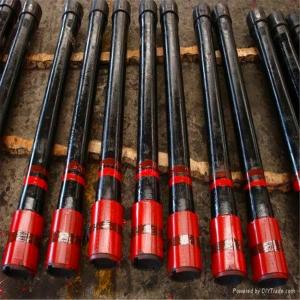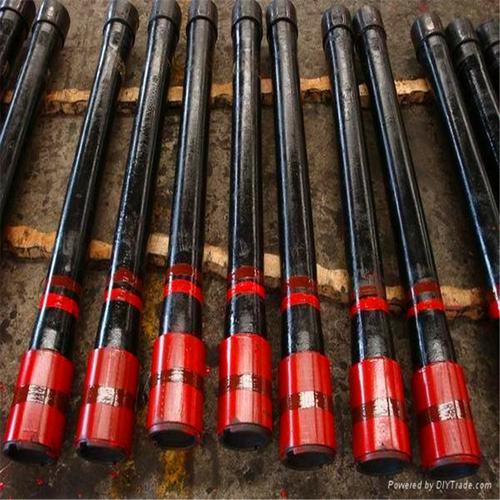High-Pressure 2-3/8" 4.5" Oil Field Tubing Pipes Wholesale Supplier
- Loading Port:
- Tianjin
- Payment Terms:
- TT OR LC
- Min Order Qty:
- 1 m.t.
- Supply Capability:
- 1100 m.t./month
OKorder Service Pledge
OKorder Financial Service
You Might Also Like
Specification
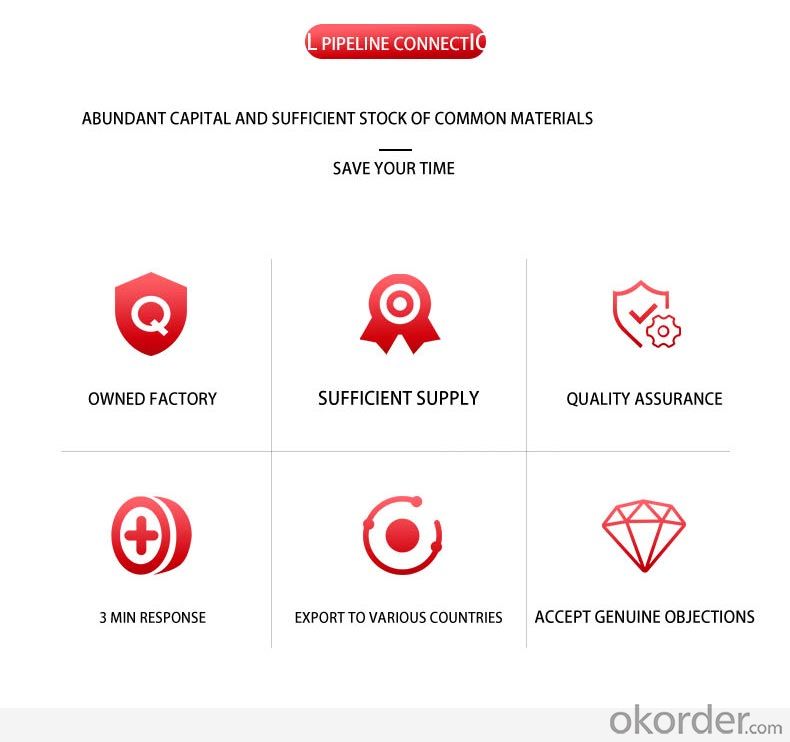
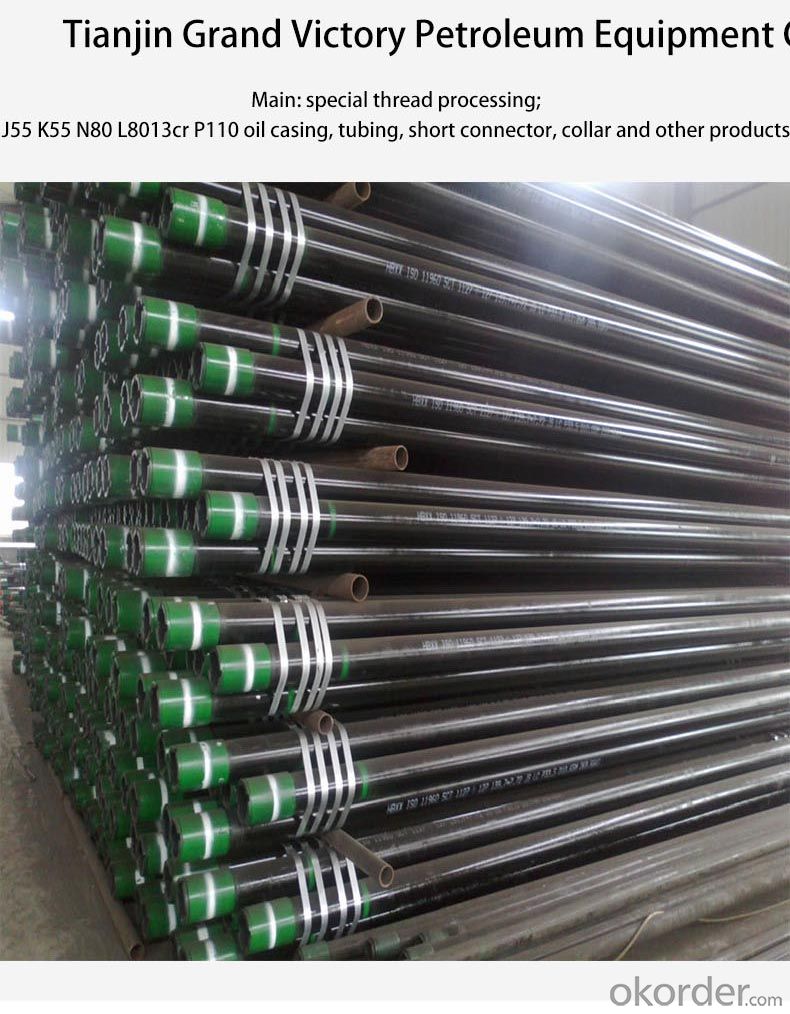
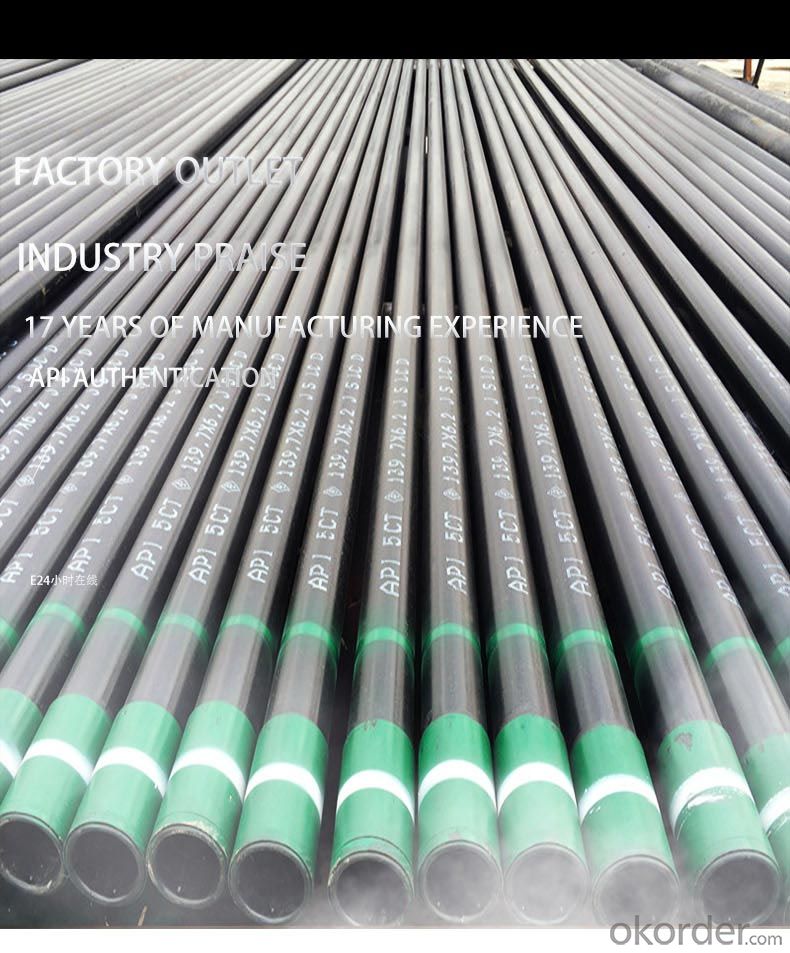
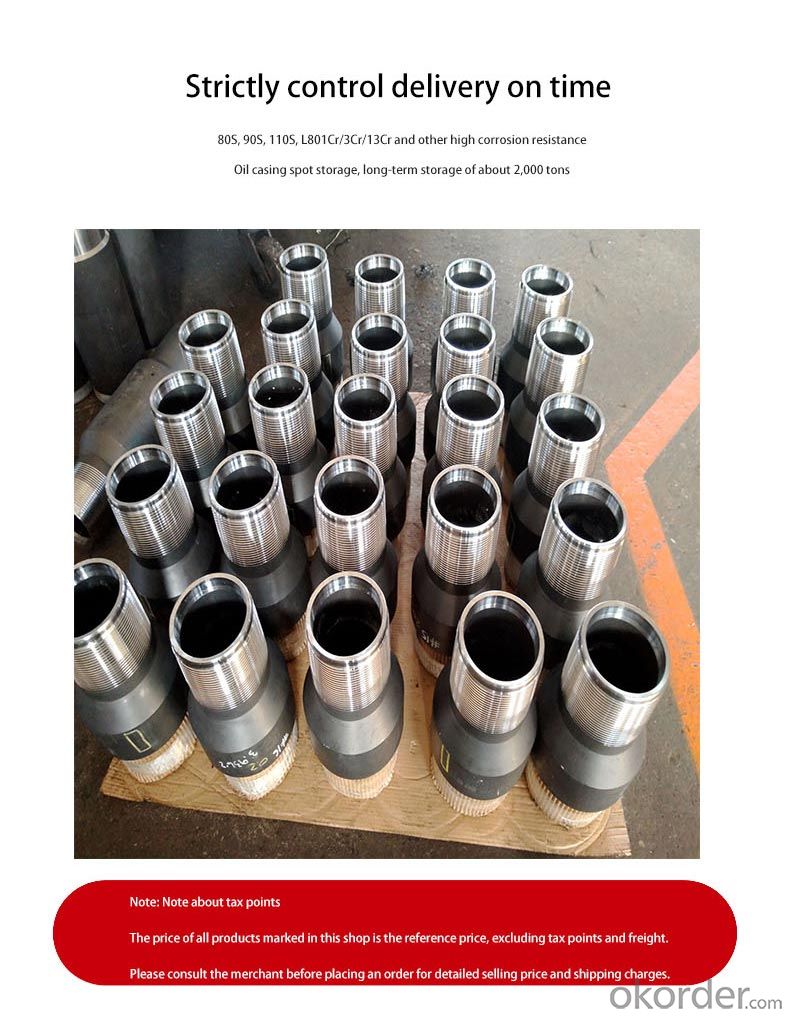
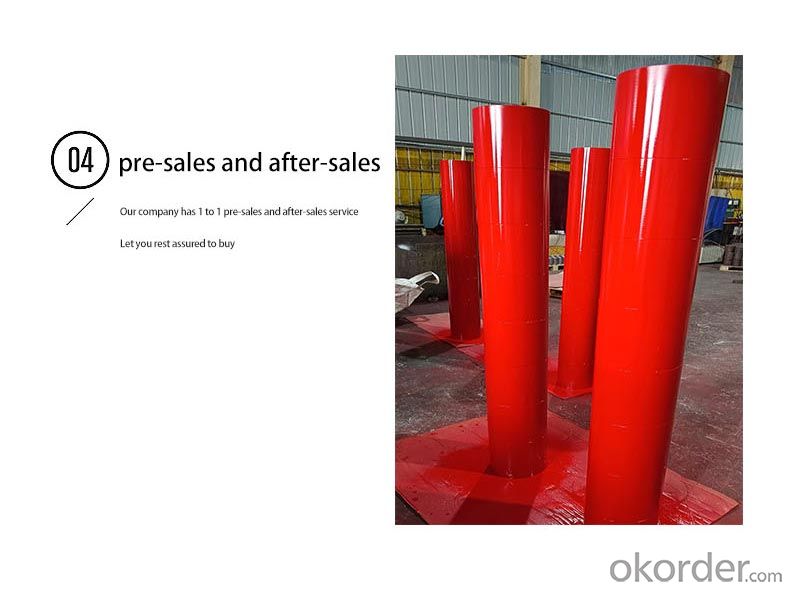
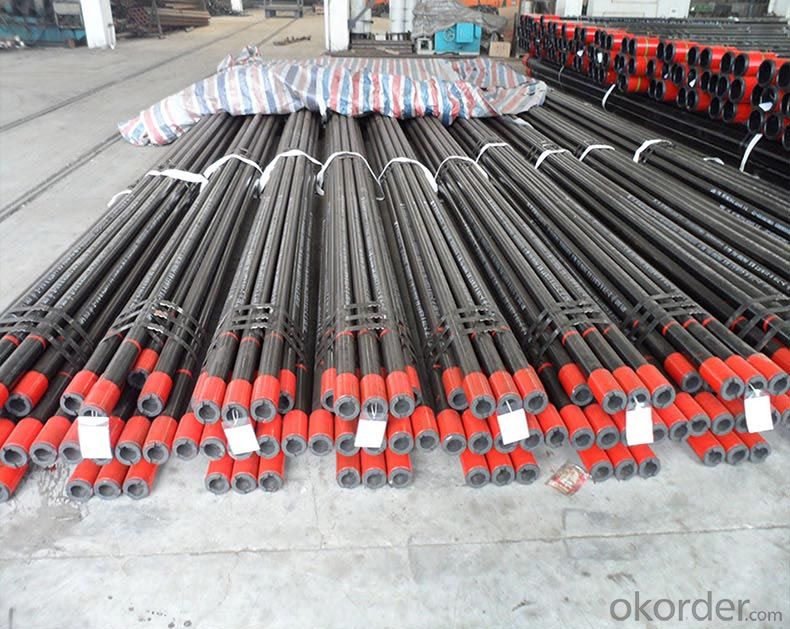
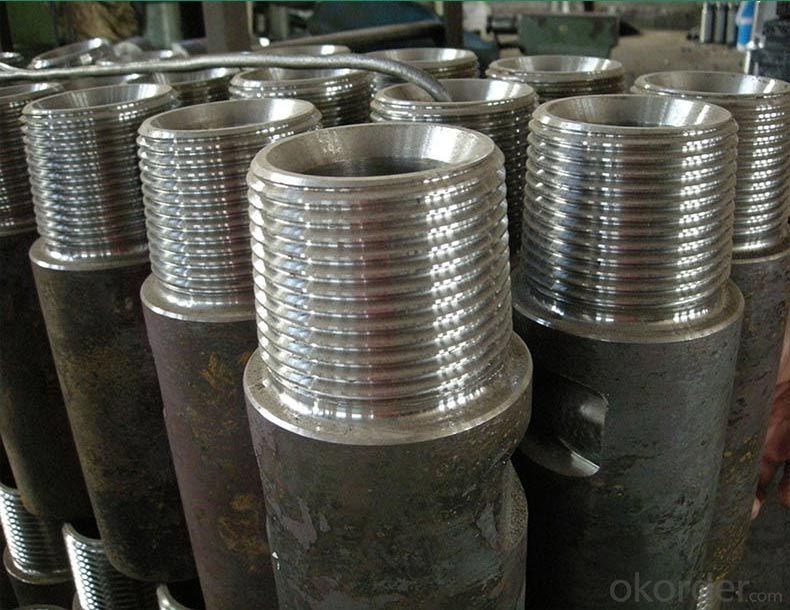
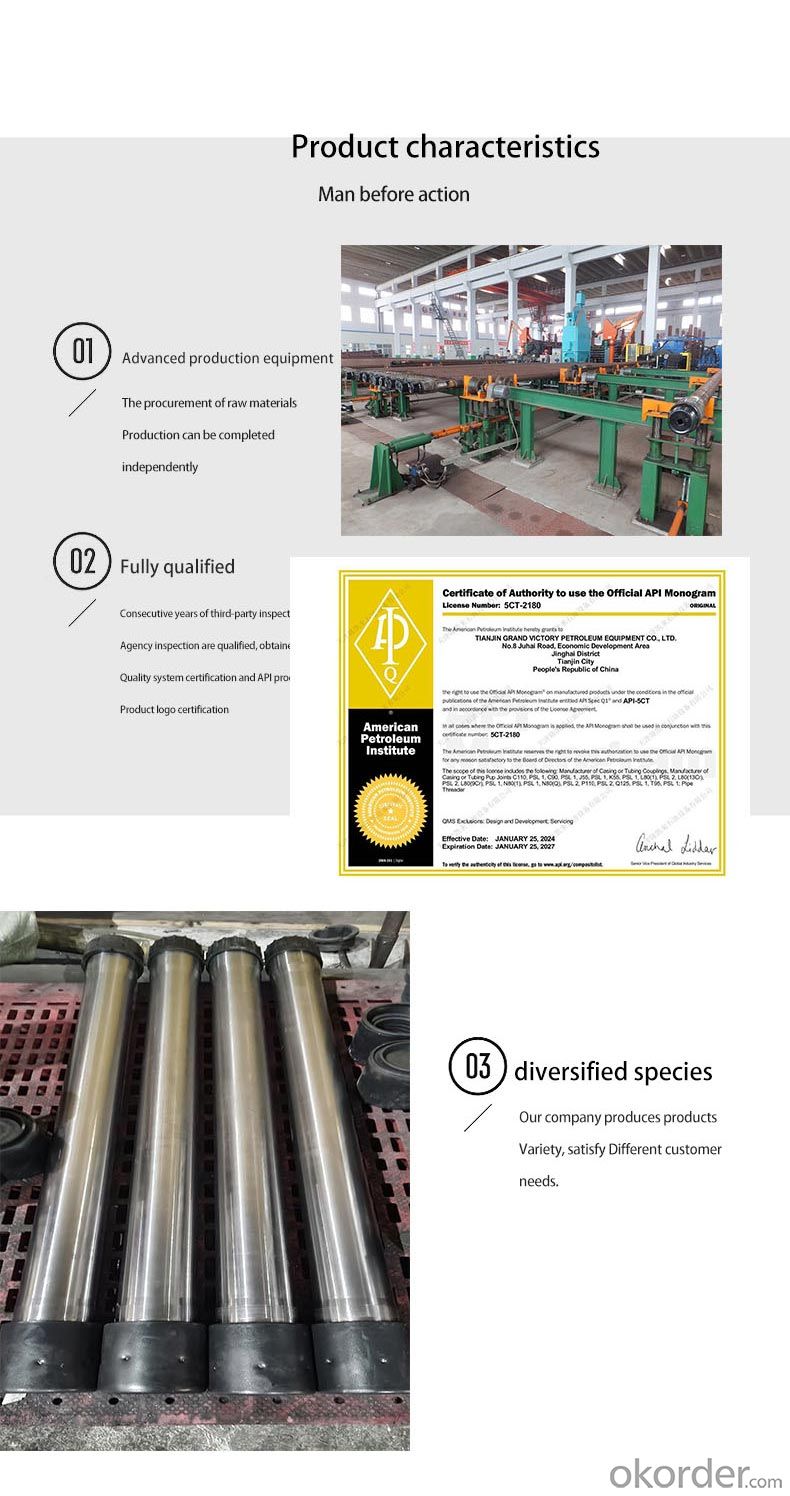
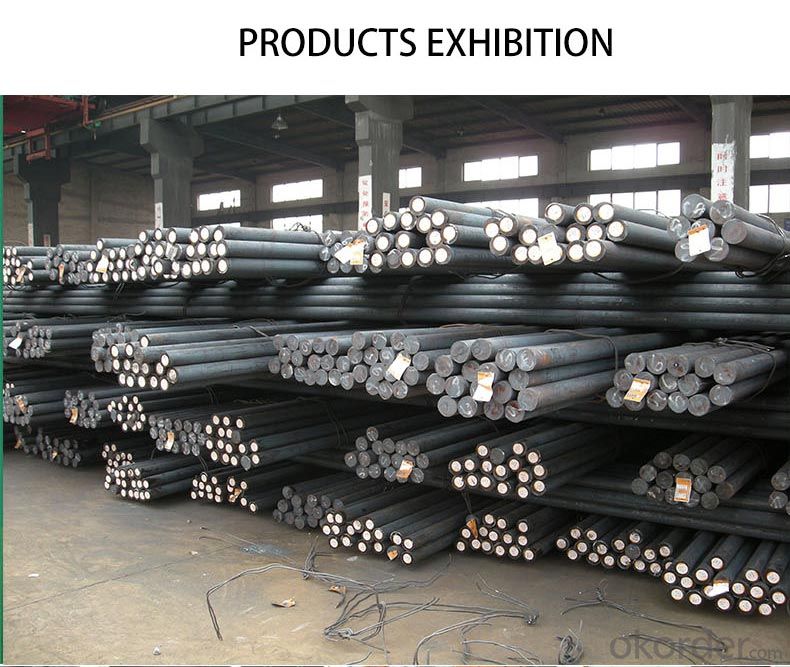
API 5CT J55/N80/P110 OCTG Casing & Tubing Manufacturer Direct
Comprehensive OCTG Solutions for Every Well Profile
As an API-licensed manufacturer, we eliminate intermediaries to deliver J55/N80/P110 casing and tubing with 15% cost savings. Our vertically integrated production process ensures full traceability from steel billet to finished product.
Technical Specifications
Material Science:
J55: 0.45% Mn, 0.25% C composition for shallow wells (≤8,000ft TVD)
N80: Quenched & tempered microstructure withstands 12,000psi collapse pressure
P110: 110ksi SMYS with Charpy V-notch impact ≥45J at -20°C
Threading Technology:
CNC-machined API LTC/BTC threads with ±0.003" pitch diameter tolerance
Optional VAM TOP connections for HPHT wells
Quality Assurance:
100% ultrasonic testing (UT) for laminations
Hydrostatic tested to 80% of yield strength
Applications
J55: Water injection wells, surface casing
N80: Intermediate casing in sour gas fields
P110: Production casing in 15,000psi reservoirs
Case Study
A Permian Basin operator reduced casing costs by 18% using our direct-shipment P110 casing for 35 horizontal wells, achieving 95% torque-turn compliance during running
- Q: What material is RHS in the steel tube?
- RHS is a rectangular hollow section steel. The RHS structure represents a rectangular hollow section steel.
- Q: What are the different types of steel pipe connections for oil and gas pipelines?
- The different types of steel pipe connections for oil and gas pipelines include threaded connections, welded connections, and flanged connections. Threaded connections involve screwing the pipes together using a threaded end, which ensures a secure fit. Welded connections involve permanently joining the pipes together using welding techniques such as butt welding or socket welding. Flanged connections involve attaching flanges to the ends of the pipes and bolting them together, providing a strong and leak-proof connection.
- Q: How are steel pipes used in the oil and gas industry?
- Steel pipes are widely used in the oil and gas industry for various purposes. They are primarily used for transporting and distributing oil and gas from extraction sites to refineries and end consumers. Steel pipes are also used in drilling operations, where they are utilized as casing and tubing to extract oil and gas from wells. Additionally, steel pipes are employed in the construction of storage tanks, pipelines, and other infrastructure required for the production, processing, and transportation of oil and gas. Overall, steel pipes play a crucial role in ensuring the efficient and safe operation of the oil and gas industry.
- Q: Can steel pipes be used for oil well casing?
- Yes, steel pipes can be used for oil well casing. Steel is a commonly used material for oil well casing due to its strength, durability, and resistance to corrosion.
- Q: Can steel pipes be recycled and used for other purposes?
- Yes, steel pipes can be recycled and used for other purposes. Steel is a highly recyclable material, and steel pipes are no exception. Recycling steel pipes helps to conserve natural resources and reduce the demand for new steel production. When steel pipes are recycled, they are typically sent to a recycling facility where they are sorted, cleaned, and processed. The pipes are then crushed into smaller pieces or melted down to be reshaped into new steel products. Recycled steel pipes can be used for a variety of purposes. They can be used in construction projects, such as for building bridges, roads, or buildings. They can also be used in the manufacturing of new steel products, such as automotive parts, appliances, or furniture. Additionally, recycled steel pipes can be used in the energy sector, for example, in the production of wind turbines or oil and gas pipelines. Using recycled steel pipes not only helps to reduce waste and conserve resources but also has environmental benefits. The recycling process requires less energy and produces fewer greenhouse gas emissions compared to the production of new steel. Therefore, recycling steel pipes is a sustainable option that contributes to a circular economy and helps to protect the environment.
- Q: Can steel pipes be used for natural gas processing plants?
- Yes, steel pipes can be used for natural gas processing plants. Steel pipes have excellent strength and durability, making them suitable for transporting and processing natural gas. They can withstand high-pressure conditions and are resistant to corrosion, providing a safe and reliable option for gas processing facilities.
- Q: Can steel pipes be used for wastewater treatment plants?
- Yes, steel pipes can be used for wastewater treatment plants. Steel pipes are commonly used in wastewater treatment plants due to their durability, strength, and resistance to corrosion. They are suitable for conveying and transporting various types of wastewater and can withstand the harsh and corrosive environment found in these facilities. Additionally, steel pipes can be easily welded and joined, allowing for efficient installation and maintenance processes.
- Q: Can steel pipes be used for conveying gases?
- Yes, steel pipes can be used for conveying gases. Steel pipes are commonly used in various industries, including oil and gas, petrochemical, and construction, for transporting various types of gases such as natural gas, air, and hydrogen. Steel pipes offer several advantages for gas transportation. They are strong and durable, able to withstand high pressure and temperature conditions. Steel pipes also have excellent resistance to corrosion and can effectively prevent gas leakage, ensuring the safety and reliability of the gas transportation system. Additionally, steel pipes have a smooth internal surface, which minimizes the frictional resistance and allows for efficient gas flow. Overall, steel pipes are a reliable and widely-used option for conveying gases in various applications.
- Q: How are steel pipes protected against microbial corrosion?
- Various methods are employed to safeguard steel pipes against microbial corrosion. One widely used technique entails applying coatings onto the surface of the pipes. These coatings act as a shield, effectively blocking the entry of microbes and their corrosive byproducts into the steel, thereby safeguarding it from degradation. Coatings like epoxy, polyethylene, and fusion bonded epoxy are frequently utilized to bestow this protection. Another method involves the use of corrosion inhibitors. These inhibitors are added to the fluid that flows through the pipes in order to impede microbial growth and prevent corrosion. They can be either organic or inorganic compounds that function by either eradicating the microbes or inhibiting their metabolic activity. Furthermore, ensuring proper maintenance and cleaning of the pipes is vital in preventing microbial corrosion. Regular inspections and cleaning routines aid in the elimination of any biofilms or microbial deposits that may have formed on the pipe's surface. This significantly reduces the likelihood of microbial corrosion and prolongs the lifespan of the pipes. In certain cases, cathodic protection may also be employed. This method entails utilizing sacrificial anodes or impressed current systems to supply a protective electrical current to the pipe. This current helps prevent the formation of corrosive microorganisms and shields the steel from corrosion. In summary, a combination of coatings, corrosion inhibitors, regular maintenance, and cathodic protection techniques are employed to protect steel pipes from microbial corrosion. By utilizing these strategies, the longevity and integrity of the pipes are ensured, benefiting various industries such as oil and gas, water supply, and sewage systems.
- Q: Galvanized steel pipe in addition to good rust resistance, what are the advantages?
- Galvanized steel is cracking for 39 days and will not, especially suitable for Northern very cold environment.
Send your message to us
High-Pressure 2-3/8" 4.5" Oil Field Tubing Pipes Wholesale Supplier
- Loading Port:
- Tianjin
- Payment Terms:
- TT OR LC
- Min Order Qty:
- 1 m.t.
- Supply Capability:
- 1100 m.t./month
OKorder Service Pledge
OKorder Financial Service
Similar products
Hot products
Related keywords
